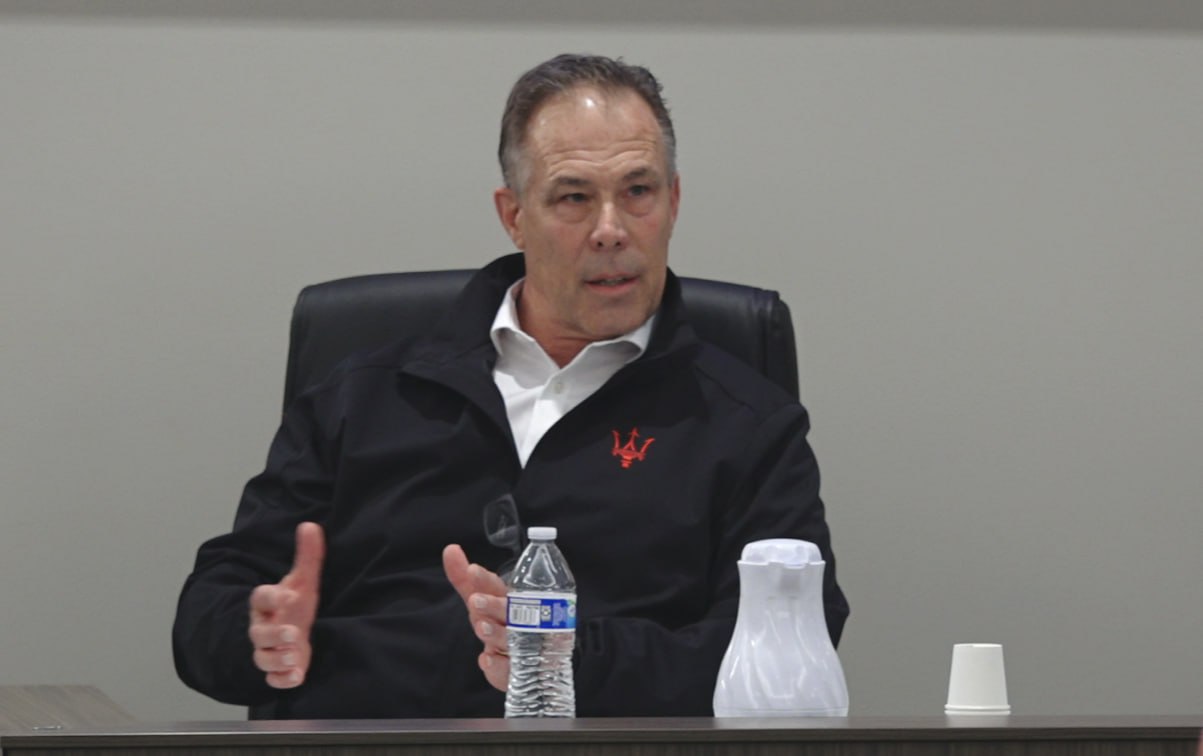COEUR D’ALENE, Idaho – After publication of the first two articles in this series on the circumstances surrounding the North Idaho College (NIC) accreditation review process, many community members have expressed appreciation for the information which has given them a better understanding of the events. Three readers gave permission to share their thoughts on Part I and Part II articles:
Thanks to Kootenai Journal for The Accreditation Saga at North Idaho College article series – it’s great to read a truthful account of what’s happened at NIC.”
Charles C., Post Falls
First of all, thank you for taking the time and effort to bring forth the information regarding the workings of the NIC trustees. As a new person to the area at the time this was unfolding (Nov. 2021) and relying on the local paper for information, it lacked the whole story and many of the important details revealed in your articles.”
Richard B., Hayden
I very much appreciate your efforts in helping to sift through the fear tactics and misrepresentation of information to provide clear and honest coverage regarding NIC’s accreditation process and better informing the public so that we will be able to hold to account members of the NIC administration and trustees for their actions and shady dealings.”
Larry M., Post Falls
Additionally, the national publication Higher Ed Dive, cited our coverage of the NIC accreditation situation in an article on March 6, 2024. Journalist Lilah Burke wrote, “The Kootenai Journal, a conservative news publication, has suggested that there is not, and never has been, any real danger of the NWCCU pulling accreditation. Charity Joy, editor in chief of the publication, also suggested that the media had misconstrued the issues around North Idaho College and that progressive activists had triggered the accreditation saga.” We stand by our publication of the factual progression of events concerning NIC’s circumstances, including the pertinent details that provide a thorough understanding of procedures and local entities that impact the dynamics between the board and the president.
The Accreditation Saga at North Idaho College: Part III
On October 24, 2022, in their last board meeting, the outgoing appointed NIC trustees authorized another real estate purchase located at 737 Military Drive, Coeur d’Alene, over the objections of the two elected trustees. The Kootenai Journal could not find a record of an inspection of the property before the purchase was executed.
After the November 2022 election restored the college to a governing board of five elected trustees, again with a 3-2 ideological split, there was an increase in political rhetoric and activism from several groups, including SaveNIC, which opposed the board majority’s desire to review the presidential selection process, presidential contract language, and real estate purchases. The board’s November meeting, which was set to commence after the election results were certified, was postponed by the college president. The official narrative on the college website states weather as the purpose for the postponement, however, sources tell the Kootenai Journal that emails show President Nick Swayne refused to allow the November 2022 board meeting to proceed on campus, and the delay allowed enough time to elapse on actions taken by the previous board that ensured the newly-elected board would not be able to take corrective measures.
On November 25, 2022, NIC’s long-time general counsel Marc Lyons abruptly resigned without notice and without giving the college time to publish a request for proposal to find legal firms to replace his services. The request for proposal process is designed to give entities seeking to provide services fair and equal assessment while allowing the institution time to review and select, and NIC policy 7.01.04 governs this process for general counsel. Lyons’ decision to immediately vacate his position as NIC’s legal counsel placed the college in a precarious situation as it was already undergoing the accreditation review process and was under a Warning Status from the Northwest Commission on Colleges and Universities (NWCCU).
During the board’s first meeting on December 5, 2022, it filled the legal counsel position by temporarily hiring Coeur d’Alene attorney Arthur Macomber until a legal firm could be found through the formal process. Although Macomber had gained some name recognition within the community while campaigning for attorney general during the May 2022 primary, Trustees Tarie Zimmerman and Brad Corkill said they were “uncomfortable” deciding on the matter and both voted “nay.” In the board’s resolution to officially hire Macomber, it specified that Lyons was to “collect its entire NIC document file and NIC records in all forms, including notes, emails, and contact information for past and pending matters and stored as they are in the normal course of business whether electronic or in paper form related to its representation of NIC and, after making copies it deems needed for its records, to make all those documents and records available for pickup by the Law Office of Arthur B. Macomber within ten (10) calendar days.”
When the Kootenai Journal tried to verify how many records Lyons, who represented the college for nearly 20 years, made available to the incoming general counsel, we were told not a single NIC document or record held by Lyon’s firm had been turned over. According to Macomber, “He [Lyons] absolutely abandoned the college in the lurch by quitting unilaterally on November 25, with no notice, no replacement, and no transition plan for the school during its accreditation troubles.” Macomber has stated on multiple occasions that Lyons’ actions were against best practices in the legal field and were a detriment to the best interests of NIC. Macomber has since been replaced by permanent counsel for NIC as of October 31, 2023.
Second, the board majority voted to pass a resolution “to delay the hiring of Vice-Presidents, Provosts, Deans, and other members of the President’s Cabinet to allow Board of Trustee review of all potential hires into those positions; both for immediate hires in the next thirty (30) to sixty (60) days and for future hires during the current accreditation matters.” The resolution recognized the importance of the accreditation schedule by stating, “Board must meet its fiduciary duties to the College by gaining assurances that the individuals hired into the President’s Cabinet have the requisite qualifications to meet the needs of the NWCCU accreditation schedule, and the business and academic needs of NIC.”
Furthermore, the resolution stated that “the Board has authority pursuant to Idaho Code section 33-2109 to elect a president of the college and, upon his recommendation, appoint such officers, instructors, specialists, clerks and other personnel as it [the Board] may deem necessary; fix their salaries, and prescribe their duties.” By this resolution, it appears the trustees of the college were acting within their statutory authority and with an emphasis on selecting qualified individuals to the president’s cabinet with knowledge of how to handle the complexities of NWCCU compliance procedures. There are those who view the resolution as especially important because Swayne came to NIC with no experience running a college or managing NWCCU accreditation, and the board needed to protect the college. The resolution clearly stated that the president was to bring forward potential new hires before the board in an executive session for a “confidential review of their qualifications to meet the needs of the NWCCU accreditation schedule, and the business and academic needs of NIC.” This language left the operational control of selecting potential cabinet members firmly with the president, while respecting the board’s statutory oversight. According to the meeting minutes and review of the archived meeting video, Swayne did not interject into the board’s discussion of the resolution and did not object to the board’s action after the vote. However, Swayne did mention the importance of hiring the provost position to address NWCCU concerns and asked for it to be placed on an upcoming agenda.
Due to the timeliness of the hiring process, in conjunction with NWCCU accreditation review, the board held a special meeting on December 8, 2022. The trustees were able to speak with the three finalists for the position of provost via zoom before the meeting and stated the board was actively reviewing their responses to questions and the proposed employment contracts for each candidate. Additionally, the board was compelled to revisit both of the resolutions it passed on December 5th, due to statements issued by the governor’s office which implied the December 5th meeting had open meeting law violations. Zimmerman stated she believed the hiring of Macomber without consideration of additional candidates was a violation, and presented a motion to begin an immediate search for different legal counsel. Zimmerman did not receive a second of her motion. During discussion, Macomber said he used to teach contracts for paralegals at NIC and really loved it. He also said he would have preferred to retire, however, he felt compelled to help NIC in whatever manner possible to help address the accreditation issues. Macomber said he had worked with Lyons before, was “shocked by his resignation,” and his offer to the board was made in the spirit of assisting the college until they were able to procure permanent legal counsel via the request for proposal process.
What occurred next initiated a wave of contentious behavior from members of the public, as well as employees of the school, and left the community searching for answers while receiving little more than political spin from local news sources.
Macomber suggested that the board place Swayne on paid administrative leave while he investigated whether allegations of open meeting law violations occurred in regards to the presidential contract. What was at issue was a material error in the contract which was altered after the contract was signed, and after it was approved by the previous board. Macomber stated the obstructionist actions by Lyons, who had been directly involved with the execution of the presidential contract as NIC counsel, meant he was unable to get basic information about the situation which, in effect, made an investigation necessary where none would be if Lyons’ simply produced the pertinent materials.
“I need to investigate. I want to protect our president. So I am going to recommend to the board … [they] put Dr. Swayne on administrative leave,” stated Macomber. “It’s at full pay.” Macomber explained that he wanted Swayne to be able to “have clean hands” while the investigation was undertaken, so that he was free to say that he did not impede. Due to the partisan and hyped-up rhetoric during the election cycle about accreditation pending on the election results, Macomber added, “I want to assure the community that the entire purpose of my recommendation is to calm things down, give everyone a little space and cool off.” He went on to say the differences of opinions on this action were not as important as “fixing NIC.”
The board followed Macomber’s advice, and placed Swayne on paid administrative leave effective immediately upon the conclusion of the meeting. The motion contained language requesting the parties work together to help address concerns that impede accreditation. However, Swayne decided to file a lawsuit against NIC on December 16, 2022, claiming the board did not have the authority to place him on administrative leave. This lawsuit led to a court injunction that forced the college to reinstate Swayne before hearing material evidence, and incurred hefty legal fees that NIC was required to pay. There are legal scholars who believe the actions of the court set new precedence in contract law in Idaho, while others dispute this view. The community will never know whether or not the investigation into the presidential contract could have been resolved amicably outside of court proceedings, likely even resulting in Swayne’s return as acting president.
A special meeting on December 10, 2022, to address selecting an interim president while Swayne was on administrative leave was disrupted due to someone pulling a fire alarm. The ensuing investigation found the person most likely responsible for the act to be Theresa Borrenpohl, a former NIC staff member and former Democratic candidate for an Idaho House of Representatives seat. No one has been charged by the Coeur d’Alene prosecutor for actions pertaining to the pulled fire alarm at the college.
The fallout from the board’s decision, the subsequent lawsuit by Swayne, and the court’s action continues to this day. A current lawsuit against the college by a former member of the president’s cabinet arises out of alleged actions taken by Swayne after the court’s injunction to reinstate, as well as alleged actions taken by NIC staff and community members who advocated for Swayne’s reinstatement. A board meeting held on December 21, 2022, which lasted almost four hours, was a contentious and unruly meeting where hundreds of people filled the seats, and interjections to the proceedings by current and former staff and faculty was unprecedented.
Due to procedural deficiencies in the board’s motions on December 8, 2022, several matters were redone on December 21, 2022, to adhere to Idaho open meeting laws, including the decision to place Swayne on “protective administrative leave.” The board chair Greg McKenzie motioned to rescind the action, which passed unanimously. McKenzie then presented the following: “a motion for the board to place Dr. Swayne on administrative leave, effective immediately, to protect him from charges of interference with the college attorney’s investigation into President Swayne’s employment contract, which investigations are to be immediately implemented with NIC co-lead assistance, and the college attorney shall send a letter to Dr. Swayne regarding conditions of such leave. After those investigations, the college attorney shall issue an attorney-client privileged report for the board’s consideration.” This motion passed in a 3-2 vote and resulted in disruptive booing from the audience. Meeting minutes show that both Zimmerman and Corkill voted against going into executive session to discuss personnel matters and pending litigation.
The different NIC constituency groups used the decision to place Swayne on paid administrative leave to publicly chastise the board for the better part of a year. Additionally, they issued votes of no confidence against the board multiple times. By all accounts, these actions taken by NIC constituency groups did nothing to advance a successful conclusion to the NWCCU accreditation review process or show a willingness to work in a collaborative way with the governing board.
The college’s accreditation review process is set to conclude in April 2025. On February 16, 2024, an article published in The Sentinel by Wyatt Tietz shows that very few people on campus have concerns relating to the accreditation review. According to the article, the complexity of the matter, coupled with the lengthy process, is simply too much to capture most people’s ongoing attention. Plus, students currently on campus will not be adversely affected regardless of the final outcome as all their courses will remain fully accredited in any potential scenario. Tietz also noted that “the Parker campus and NIC’s Workforce Education Center house programs that are independent from NIC’s accreditation status” which gives those instructors and students little reason to concern themselves with the accreditation saga. Another article by Tietz, highlighted the board’s inability to enter into executive session on six separate occasions since August 2023. The “nay” votes against entering into executive session are consistently made by Zimmerman and Corkill, which blocks the board’s ability to discuss personnel matters and pending litigation. This appears to be a political tactic that has the unfortunate effect of exposing the college to additional risk, frustrates the efforts to comply with NWCCU standards, and stymies the ability to resolve matters for the good of the college.
Editor’s note: this article is the final part of The Accreditation Saga at North Idaho College series. While much more has transpired at the college from the time of the court injunction until now, the Kootenai Journal has already covered these events in regular news reports. Please visit www.kootenaijournal.com to find previous coverage on NIC. We will continue to keep the community abreast of important milestones in the accreditation review process as the matter unfolds.










